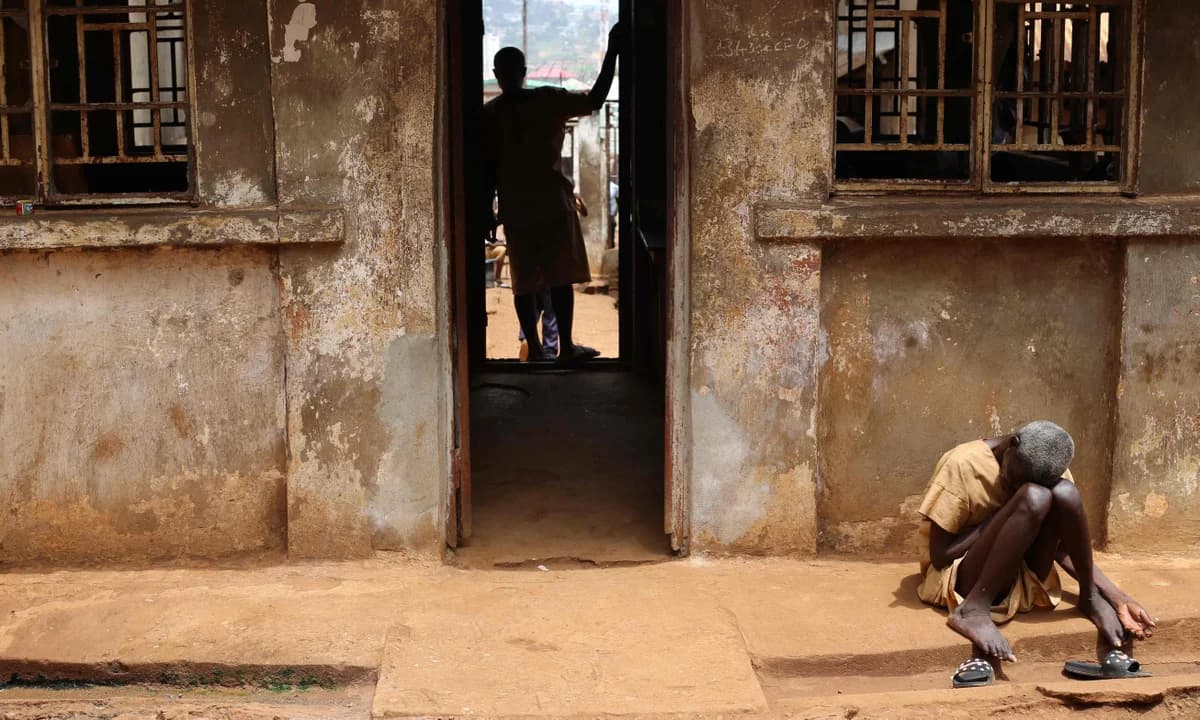We're loading the full news article for you. This includes the article content, images, author information, and related articles.
The brutal trade in human body parts for ritual charms in West Africa highlights a crisis of belief and impunity that echoes across the continent, including documented cases of witchcraft accusations and ritual violence in Kenya.

MAKENI, SIERRA LEONE – Four years after her 11-year-old son Papayo was abducted and murdered, Sallay Kalokoh’s pain is unabated. His mutilated body, discovered at the bottom of a well two weeks after he vanished while selling fish, was missing vital organs, his eyes, and an arm. “Today I'm in pain. They killed my child and now there is just silence,” Ms. Kalokoh told BBC Africa Eye, voicing a grief compounded by a complete failure of justice. Papayo’s case is a harrowing example of suspected “juju” killings in Sierra Leone, where human body parts are harvested for use in black magic rituals believed to bring wealth or power.
These horrific acts, often referred to as medicine or muti murders, are not isolated incidents but part of a deeply rooted issue across parts of sub-Saharan Africa. The belief that organs from children are more potent makes them primary targets. Perpetrators, often commissioned by clients seeking success, are promised large sums of money for specific body parts like tongues, genitals, or hearts, which are then used in charms by illicit practitioners. Despite the frequency of these crimes, official investigations are rare and convictions even rarer, fostering a climate of impunity that terrorizes vulnerable communities.
In Sierra Leone, the problem is particularly acute, yet difficult to quantify due to underreporting and the classification of such crimes simply as murder, without acknowledging the ritualistic motive. Miriam Fullah, a trafficking in persons manager for World Hope International in Sierra Leone, testified before the U.S. Congress in September 2023 that obtaining data is challenging because ritual murders are not prosecuted as a distinct crime. This lack of specific legal frameworks hinders efforts to tackle the root cause. Reports suggest a surge in such killings around election periods, with some politicians allegedly turning to these rituals to gain power. However, Sierra Leonean police have at times refuted claims of a widespread increase, attributing such reports to smear campaigns.
The United Nations Human Rights Council has recognized the global scale of the problem, passing a landmark resolution in July 2021 condemning harmful practices related to accusations of witchcraft and ritual attacks. The resolution calls on states to ensure accountability and protect vulnerable persons, including children, women, and persons with albinism, who are disproportionately targeted. A 2023 UN report highlighted how these violations are often committed with impunity, perpetuating a cycle of violence.
While the focus of the BBC Africa Eye report was Sierra Leone, the underlying drivers of superstition, poverty, and systemic injustice resonate strongly in East Africa. The region has long battled the horrific persecution of people with albinism, who are hunted for their body parts based on the false belief that they possess supernatural powers. In Tanzania, between 2000 and 2016, at least 75 people with albinism were killed, yet successful prosecutions remain dismally low, a failure criticized by the UN.
In Kenya, while the context differs, violence rooted in superstition is a persistent threat. A 2024 study on ritual child homicide in Kenya and Ghana revealed that between 2012 and 2021, media outlets reported 102 ritual murders in Kenya, with children accounting for 66 of the victims. The study identified the primary motives as financial gain and the desire for protection through rituals. Cases include a three-year-old boy in Kisii whose eyes were gouged out for a ritual and an eight-year-old girl found mutilated in Murang'a. Furthermore, accusations of witchcraft, often targeting elderly women, are used to justify violence and land grabs, with a human rights group verifying over 250 such murders in coastal counties between 2020 and 2022.
Kenya’s Witchcraft Act, a colonial-era law, criminalizes the practice of witchcraft intended to cause harm but has been criticized for its vague wording and inconsistent enforcement. This legal ambiguity often fails to protect victims of accusations while doing little to deter those who exploit superstitious beliefs for criminal ends. The inefficiency of the criminal justice system in both Ghana and Kenya means over 90% of perpetrators are not apprehended, fostering a climate where these crimes continue unabated.
The fight for justice for victims like Papayo in Sierra Leone is part of a larger, continent-wide struggle against violence fueled by dangerous superstitions. The failure of judicial systems to investigate, prosecute, and convict perpetrators leaves families devastated and communities living in fear. As long as the belief that human life can be sacrificed for personal gain persists, and as long as the systems meant to protect citizens fail to act decisively, the silence that haunts Sallay Kalokoh will continue to echo across countless other communities in Africa.
Keep the conversation in one place—threads here stay linked to the story and in the forums.
Sign in to start a discussion
Start a conversation about this story and keep it linked here.
Other hot threads
E-sports and Gaming Community in Kenya
Active 9 months ago
The Role of Technology in Modern Agriculture (AgriTech)
Active 9 months ago
Popular Recreational Activities Across Counties
Active 9 months ago
Investing in Youth Sports Development Programs
Active 9 months ago